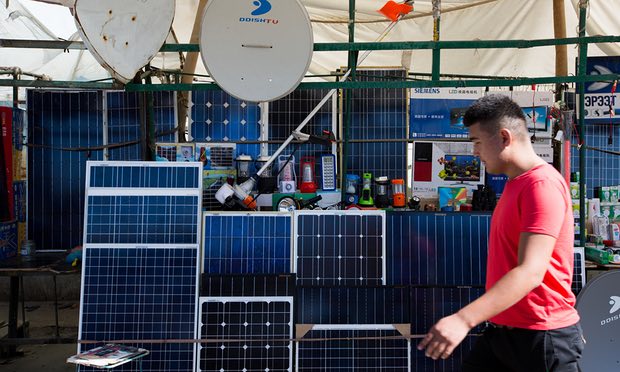Falling solar and wind prices have led to new power deals across the world despite investment in renewables falling

Solar panels on sale at the Naran Tuul market in Ulaanbaatar, Mongolia. Photograph: Seong Joon Cho/Getty Images
CLICK HERE - Global Status Report - REN21 - Renewable Energy Policy Network for the 21st Century
theguardian.com - by Damian Carrington - June 6, 2017
Renewable energy capacity around the world was boosted by a record amount in 2016 and delivered at a markedly lower cost, according to new global data – although the total financial investment in renewables actually fell.
The greater “bang-for-buck” resulted from plummeting prices for solar and wind power and led to new power deals in countries including Denmark, Egypt, India, Mexico and the United Arab Emirates all being priced well below fossil fuel or nuclear options . . .
. . . The new renewable energy capacity installed worldwide in 2016 was 161GW, a 10% rise on 2015 and a new record, according to REN21, a network of public and private sector groups covering 155 nations and 96% of the world’s population.
Recent Comments